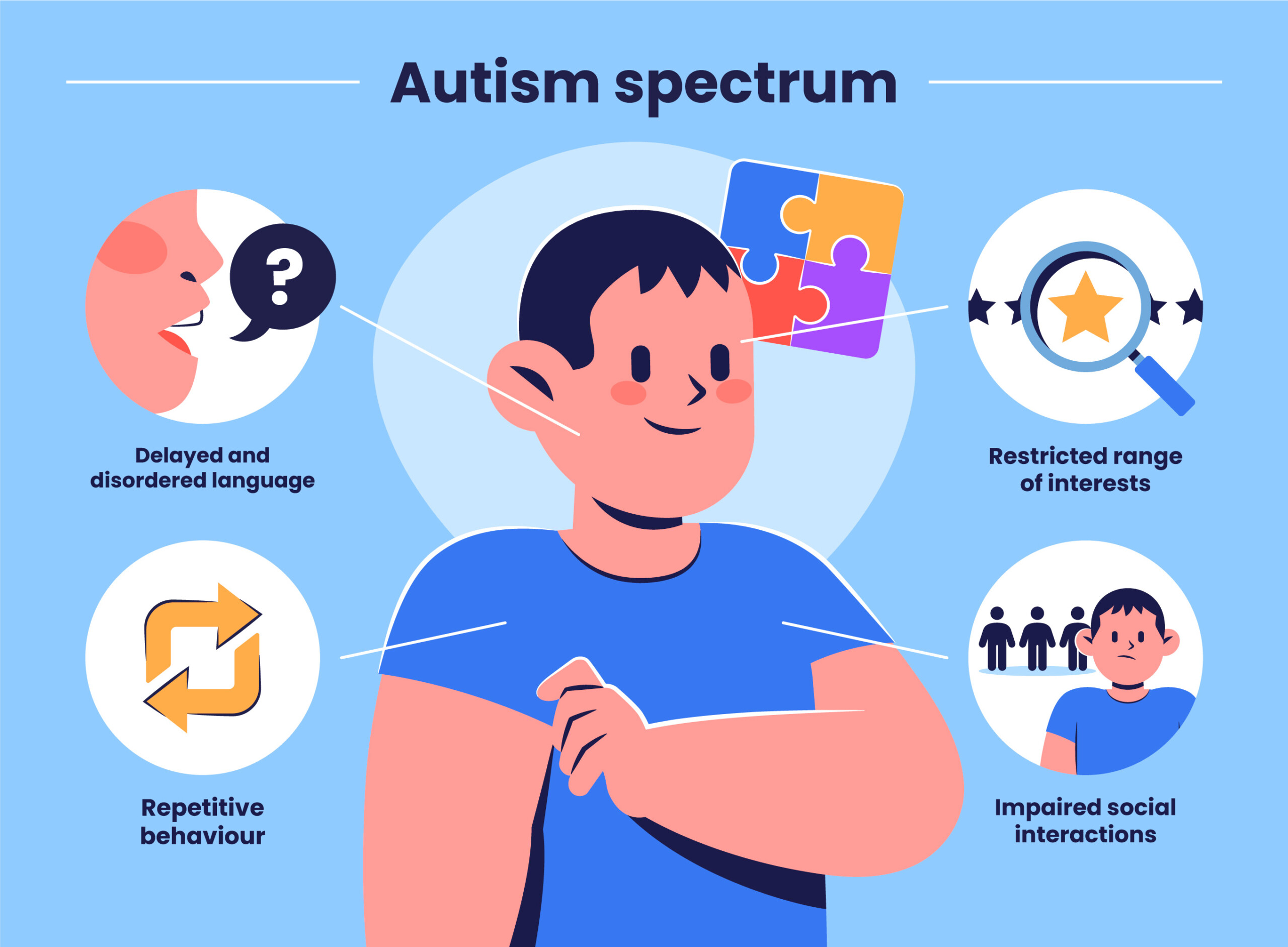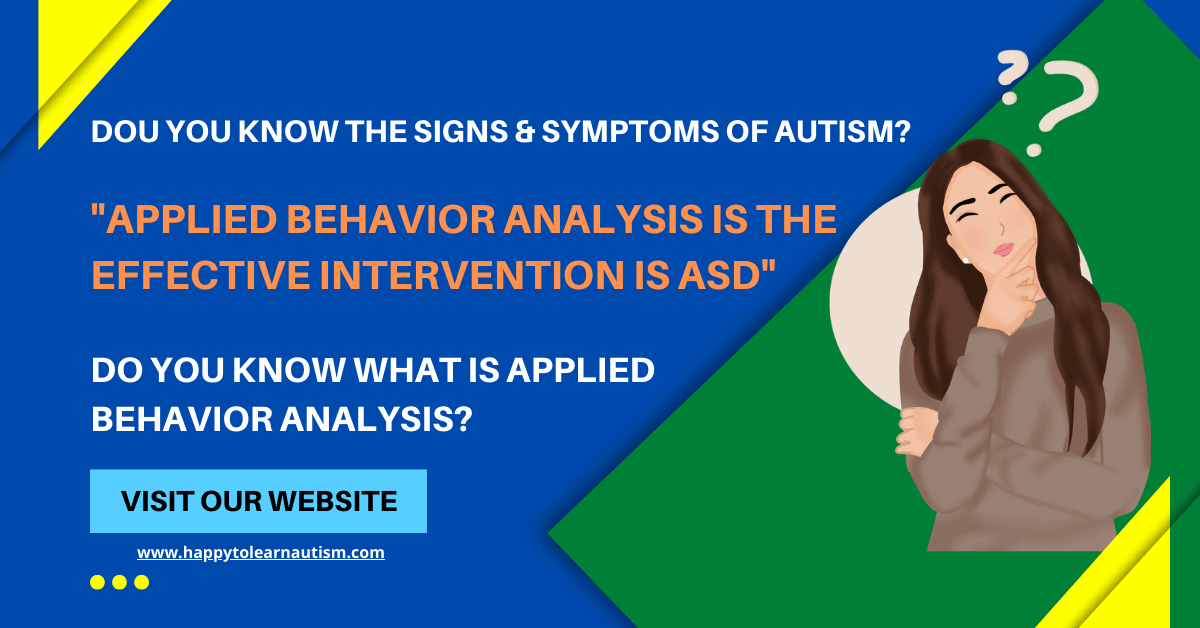Top 10 points about how an Autism Therapist's intervention supports social growth in autism
Top 10 points about how an Autism Therapist's intervention supports social growth in autism
Blog Article
Understanding the Effect of Behavioral Autism on Life and Social Communications
You could not realize exactly how deeply behavior autism impacts every day life and social interactions. Individuals on the spectrum typically navigate a world loaded with interaction difficulties and sensory overload. These obstacles can bring about stress and isolation, influencing their partnerships and overall well-being. Recognizing these subtleties is vital for promoting helpful environments. What approaches can we execute to develop even more inclusive spaces and meaningful links? The answers could shock you.
Defining Behavior Autism and Its Characteristics
Behavior autism, often described as autism range disorder (ASD), includes a series of problems identified by obstacles in social communication, interaction, and repeated behaviors. You may discover that individuals with ASD often battle to translate social signs, which can result in misconceptions in discussions. They might discover it hard to develop eye get in touch with or participate in small talk, making social scenarios really feel frustrating.
Communication troubles can materialize in various methods, from postponed speech advancement to a choice for using less words. Repeated actions, such as hand-flapping or shaking, can work as coping mechanisms to take care of tension or sensory overload. These features can greatly impact life, making it essential for you to comprehend and sustain those with ASD. By recognizing these qualities, you can foster an atmosphere that advertises approval and urges effective communication, assisting people with autism grow in their daily interactions.
The Spectrum of Autism: Understanding Variability in Actions
Autism spectrum disorder (ASD) isn't a one-size-fits-all medical diagnosis; it differs commonly among individuals. You may run into people who are extremely verbal and engage conveniently in discussions, while others may like singular tasks or communicate non-verbally.
In addition, the way individuals with ASD respond to sensory input can differ substantially; some may be bewildered by brilliant lights or loud noises, whereas others grow in promoting atmospheres. The spectrum additionally consists of differences in social communications; some individuals may have a hard time to translate social cues, while others browse social settings with relative ease. Understanding this variability is crucial, as it aids you appreciate everyone's one-of-a-kind experience and tailor support to their certain demands, promoting a much more comprehensive atmosphere for everyone.
Communication Difficulties Faced by Individuals With Autism
When you connect with people on the autism spectrum, you might see their unique communication challenges. They often deal with difficulties with both verbal and nonverbal signs, which can influence their social communications. Recognizing these barriers is necessary for promoting far better links and assistance.

Verbal Communication Problems
Numerous individuals on the autism range experience spoken communication troubles that can substantially influence their everyday communications. You might find it challenging to share your ideas, sensations, or requires plainly. This can result in irritation for both you and those around you, as misunderstandings take place. You might have problem with launching discussions, keeping a topic, or understanding subtleties in speech. Frequently, you may like using easy language or repetitive phrases, which can limit your capacity to take part in much deeper conversations. Your rate, tone, or quantity might not align with social assumptions, triggering others to misinterpret your purposes. Acknowledging these challenges can help you and your support network create strategies to enhance interaction and foster far better links with others in your day-to-day live.
Nonverbal Interaction Obstacles
Spoken communication isn't the only obstacle people on the autism spectrum face; nonverbal interaction barriers can be just as substantial. You could locate it challenging to translate body movement, facial expressions, and eye get in touch with, which are vital for effective communication. These obstacles can cause misunderstandings or misconceptions of social signs, making communications feel frustrating or complex. You may struggle to express your own feelings with nonverbal means, leaving others not sure of your purposes or feelings. This disconnect can create sensations of seclusion and frustration. Identifying these obstacles is important for cultivating understanding and empathy in your interactions. By addressing nonverbal communication, you can find methods to boost your social experiences and improve your total high quality of life.
Social Interaction Effects
Social interactions can often feel overwhelming due to the distinct interaction difficulties dealt with by people with autism. You may struggle with translating social hints, making it difficult to comprehend sarcasm or body language. This can cause misconceptions or unpleasant minutes in conversations. Additionally, initiating and maintaining conversations may feel difficult, causing stress and anxiety in social situations. You may choose structured settings, making spontaneous communications uncomfortable. It's additionally usual to experience trouble in taking part in little talk, which can impede creating new relationships. Identifying these challenges can assist you discover methods to enhance communication, such as practicing social abilities in secure settings or utilizing visual aids - Autism Therapist. Comprehending your needs allows you to navigate social communications with higher confidence and convenience.
Social Interaction and Connection Building in Autism
While building partnerships can be challenging for people with autism, understanding their one-of-a-kind point of views and communication styles can promote significant links. You could see that several people on the spectrum like direct interaction and might battle with social hints or tiny talk. By being simple in your communications, you can aid create an atmosphere where they really feel comfortable.
Engaging in shared passions can also serve as a bridge to much deeper connections. Whether it's a leisure activity, a favorite show, or a common interest, these common threads can open up doors to relationship.
Day-to-day Live Routine: Navigating Approaches and obstacles
Maneuvering everyday life regimens can be particularly challenging for individuals with autism, specifically when unforeseen modifications occur. To navigate these difficulties, think about carrying out visual routines or lists.
Developing a routine that includes sensory breaks can likewise be helpful. You can intend time-outs throughout your day to charge. It's necessary to connect with those around you, letting them understand your choices and requirements. This aids develop an understanding environment.
Last but not least, practice mindfulness methods to handle stress and anxiety and stress and anxiety. Straightforward breathing workouts or grounding strategies can make a considerable distinction. By including these strategies, you can improve your daily regimen and lessen interruptions, making life feel a lot more convenient.
Toughness and Capabilities of People on the Autism Spectrum
Understanding life regimens is simply one facet of the autism experience. Several people on the autism range possess amazing strengths and capacities that establish them apart. You may find that your interest to detail is i loved this exceptional, enabling you to master jobs that call for accuracy and focus. Your capacity to assume outside the box can lead to innovative options in various circumstances.
Additionally, your memory skills frequently shine, specifically in areas of rate of interest. Aba Therapist. This propensity for keeping info can make you a useful source in areas like art, scientific research, or technology. You may additionally exhibit strong visual reasoning, allowing you to picture complicated ideas and resolve problems creatively
Furthermore, your distinct perspective on the world can cultivate compassion and understanding in others, enhancing social interactions. my company Embracing these strengths not just increases your self-confidence however also aids others appreciate the varied skills you bring to the table.
Creating Inclusive Environments for Individuals With Autism
Creating comprehensive atmospheres for individuals with autism begins with designing sensory-friendly spaces that accommodate their one-of-a-kind needs. You can also foster possibilities for social interaction, helping to develop friendships and connections. By making these adjustments, you'll add to a much more inviting environment for every person.
Creating Sensory-Friendly Spaces
While creating sensory-friendly rooms, it's essential to mirror on the unique needs of people with autism. Incorporate silent zones where people can charge and pull away when bewildered. Include visual routines or clear signs to assist people browse the room confidently.
Promoting Social Interaction Opportunities
Creating sensory-friendly areas not only addresses specific comfort however additionally establishes the stage for meaningful social interactions amongst people with autism. To promote these communications, produce comprehensive atmospheres that welcome involvement. Arrange structured activities, like art courses or team games, that encourage cooperation without frustrating sensory input. Usage aesthetic help and clear communication to assist everybody engage conveniently. Encourage peer mentoring, pairing individuals with autism with supportive peers that can direct them with social circumstances. Additionally, take into consideration organizing regular neighborhood occasions that celebrate neurodiversity, fostering approval and understanding among all participants. By carrying out these strategies, you can improve social chances, aiding people with autism develop friendships and reinforce their social skills in a safe, welcoming environment.

Frequently Asked Questions
How Can Buddies Support A Person With Behavioral Autism?
You can support a buddy with behavior autism by being patient, listening proactively, and valuing their limits. Involve in activities they appreciate, connect openly, and produce a comfortable setting where they really feel valued and comprehended.
What Resources Are Available for Moms And Dads of Kid With Autism?
You can discover numerous resources for parents of youngsters with autism, consisting of support system, educational websites, and regional social work. Linking with other moms and dads can likewise supply valuable understandings and shared experiences to help browse challenges.
Can Behavioral Autism Adjustment Gradually?

Yes, behavioral autism can transform in time. You might observe changes in communication, social abilities, and behavior as your child grows. Early treatment and assistance commonly play essential roles in these developmental changes.
Exactly How Do Sensory Level Of Sensitivities Influence Every Day Life?
Sensory sensitivities can make day-to-day experiences frustrating. You could fight with intense lights or loud sounds, resulting in anxiety or avoidance. Finding environments that suit your requirements can significantly boost your convenience her latest blog and overall life.
What Are Common Misconceptions About Behavioral Autism?
You could assume behavioral autism only impacts interaction skills, but it's more complicated. Several presume individuals lack compassion or intelligence, which isn't real. Recognizing these misconceptions assists foster approval and support for those on the range.
Behavioral autism, often referred to as autism spectrum problem (ASD), encompasses a range of conditions defined by obstacles in social communication, interaction, and recurring habits.Social interactions can often feel overwhelming due to the one-of-a-kind communication challenges encountered by people with autism.Creating sensory-friendly rooms not only addresses individual convenience but additionally sets the phase for significant social communications among people with autism. Encourage peer mentoring, matching individuals with autism with supportive peers that can direct them with social scenarios. By implementing these techniques, you can improve social possibilities, aiding people with autism construct friendships and strengthen their social skills in a risk-free, welcoming environment.
Report this page